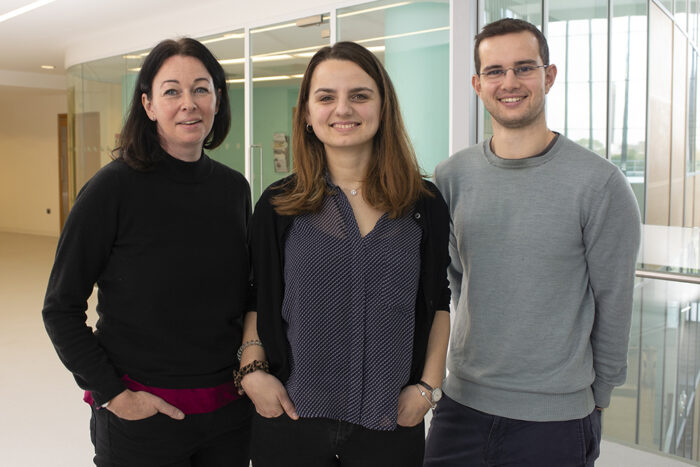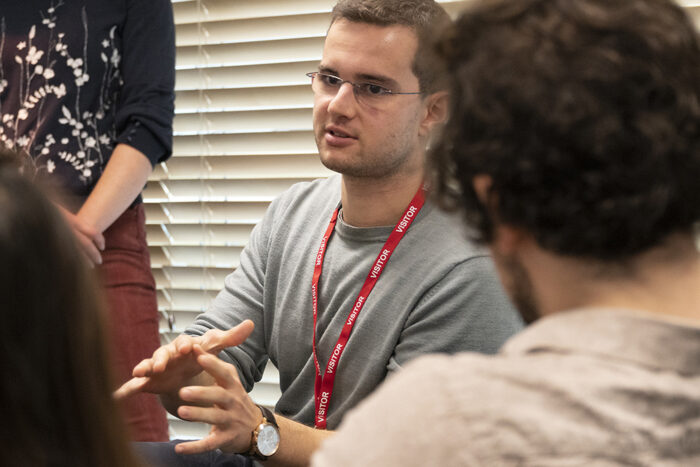The LMB recently hosted a seminar focussing on how and why scientists can and should engage with Parliament and how research can inform policy

This file is licensed under the Creative Commons Attribution-Share Alike (CC BY-SA) 2.5 Generic license. Photo by Diliff.
Jonida Tafilaku, a PhD student in Paula da Fonseca’s group in the LMB’s Structural Studies Division, completed a three-month internship with the Parliamentary Office of Science and Technology (POST), as part of UKRI’s Policy Internships Scheme for doctoral students funded by UKRI. Motivated by a desire to share her experience of this scheme, Jonida organised this seminar and invited her supervisor from the internship to talk about POST and its role in Parliament.
The main speaker at the seminar was Sarah Bunn, Jonida’s internship supervisor and a scientific advisor in biology and health at POST. Sarah described the importance of research in ensuring that parliamentarians are informed by the best possible evidence when taking decisions and making laws. She explained how research is used in Parliament through presentation of evidence to Select Committees, discussions in All Party Parliamentary Groups (APPGs), and preparation of in-depth reports by POST, while also highlighting the role of the Knowledge Exchange Unit in fostering links between researchers and Parliament.

Sarah also provided practical advice for any scientists wanting to engage with Parliament about their research, including a recommendation to follow POST and the Knowledge Exchange Unit on Twitter. In particular, she said, “Create your own opportunities”, suggesting that researchers should proactively contact POST or the Knowledge Exchange Unit, or the Select Committees and APPGs relevant to their interest and expertise, in order to share evidence or suggest topics that they should tackle in the future. Importantly, Sarah also pointed out that these groups were keen to hear from a more diverse group of experts and not just the most senior researchers.
Jonida described her internship as the pause she needed in her PhD project: she came back to it with a different mindset, thought about things in a different way and changed the direction of her research in a positive way. In describing her internship, Jonida emphasised how much she appreciated seeing an entire project through to completion, as she was there from the start of a project, through to publication of an in-depth report on climate change and vector-borne diseases in the UK.

Jonida and Sarah were joined in answering questions from the audience by Harry Michalakakis, a PhD student in the Department of Engineering at the University of Cambridge, who completed an internship with POST at the same time as Jonida, preparing a report on wind power. Harry described the internship as being “like an enhanced literature review – you need to examine very varied literature and conduct interviews with industry, as well as academic and policy experts”. He also commented that he found the experience “very enjoyable, but also very intense” and that due to that intensity, he came back to research as a better PhD student with a more focused work ethic.
The Policy Internship Scheme aims to give PhD students an insight into the world of science policy and how research can contribute to public policy. Internships are available with a number of parliamentary departments, government departments, learned societies, and other organisations.
Further references
UKRI Policy Internships Scheme
Parliamentary Office of Science and Technology
Research impact at the UK Parliament
Climate Change and Vector-Borne Disease in Humans in the UK POSTNote report
Interview with Jonida in MRC Insight blog: Taking science from the bench to policy change